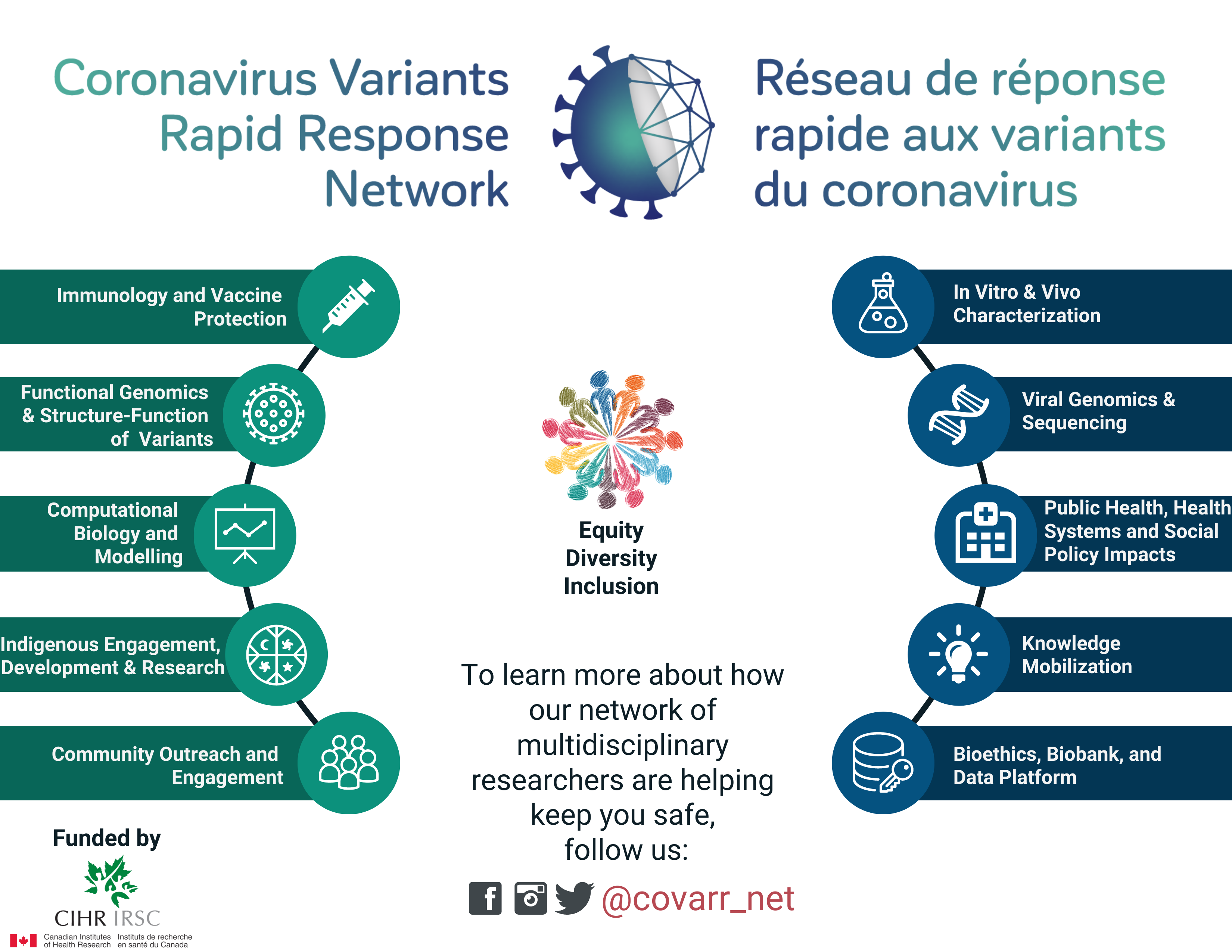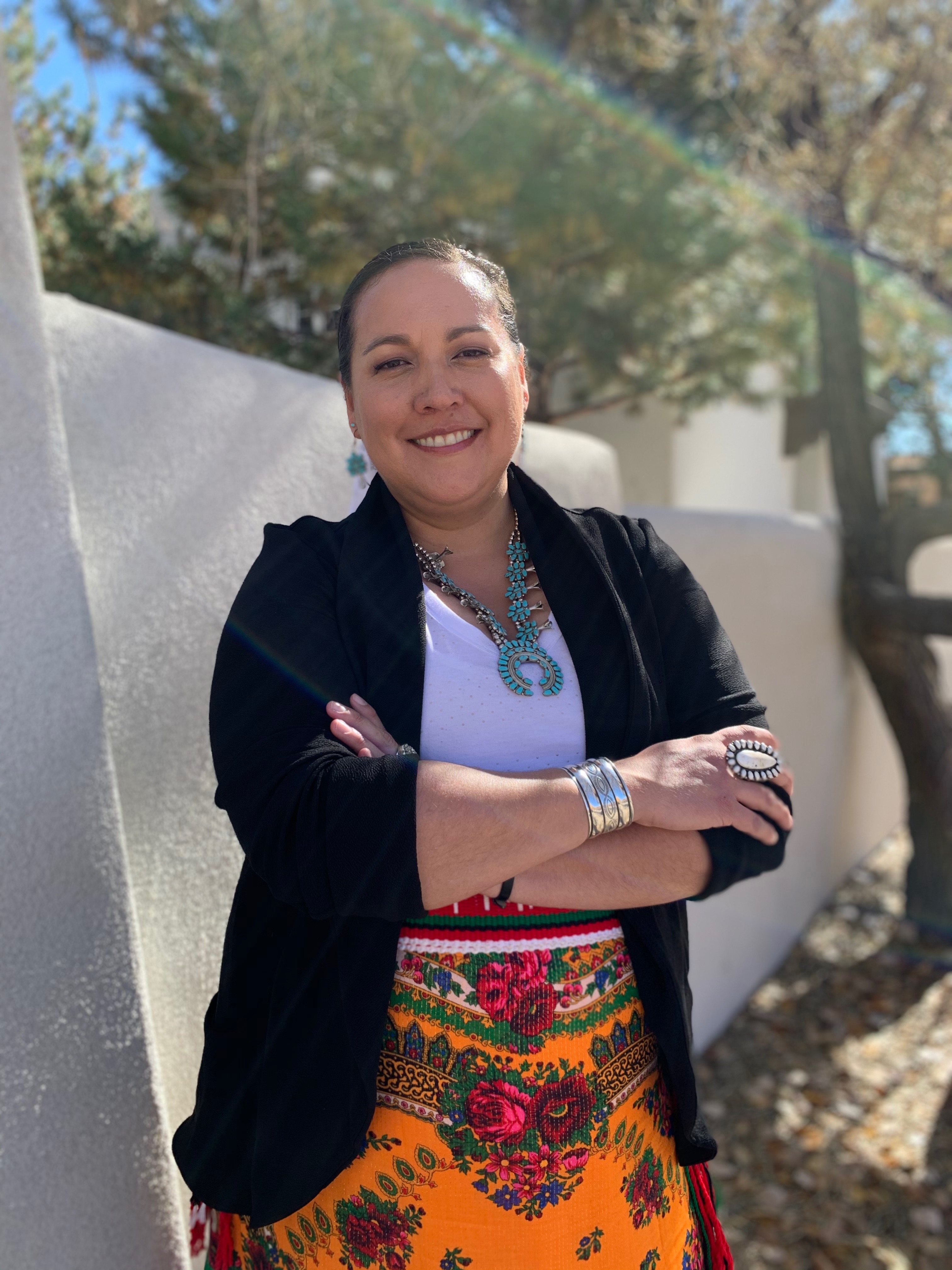

Indigenous Peoples in Canada and the United States have been disproportionally affected by the COVID-19 pandemic. Evidence suggests that Indigenous persons are more likely to contract SARS-CoV-2 and experience hospitalization than other racial and ethnic groups.


Dr. Kimberly Huyser
A new interdisciplinary research network is announcing eight research projects investigating COVID-19 variants of concern (VOCs) and variants of interest (VOIs) in Canada. University of British Columbia Sociology Professor Kimberly Huyser is overseeing Pillar 7, which focuses on Indigenous Engagement, Development, and Research (CIEDAR).
“We know Indigenous populations in Canada and the United States have been disproportionally affected by the COVID-19 pandemic, and the impact of VOCs is continually evolving,” says Dr. Kimberly Huyser, Associate Professor at the University of British Columbia, CIEDAR Lead for CoVaRR-Net, as well as project lead. “This project will not only investigate the social factors that may protect Indigenous populations – or make them more vulnerable to – COVID-19 and VOCs, but we will also curate data to understand Indigenous experiences and views of the pandemic and identify areas of concern for Indigenous Peoples in Canada regarding variants.”
Huyser’s team includes Katie Collins (University of Saskatchewan) and Michelle Johnson-Jennings (University of Washington). This project will begin to fill this knowledge gap by:
- Investigating the social factors that may protect Indigenous populations – or increase their vulnerability to – COVID-19 and VOCs
- Curating data to understand Indigenous experiences and views of the pandemic through secondary data analysis and community-based research
- Understanding Indigenous experiences and views on COVID-19, VOCs, and new health monitoring tools, and identifying areas of concern for Indigenous Peoples in Canada


About CoVaRR-Net
CIEDAR is one of eight new research projects are getting underway in Canada to investigate COVID-19 variants of concern (VOCs) and variants of interest (VOIs). These research projects span from investigating the social factors that may protect Indigenous populations – or increase their vulnerability to – COVID-19 and VOCs, to the creation of a Canadian Wastewater Surveillance Database.
All are being funded by CoVaRR-Net, or Coronavirus Variants Rapid Response Network, a network of interdisciplinary researchers from institutions across the country created to address the potential threat of emerging SARS-CoV-2 variants. CoVaRR-Net was created with a $9 million grant from the Canadian Institutes of Health Research (CIHR) and this first set of research projects represents an approximate investment of $1.2 million.
“CoVaRR-Net’s goal is to rapidly answer critical and immediate questions regarding variants, such as their increased transmissibility, likelihood to cause severe cases of COVID-19, and resistance to vaccines,” explains Dr. Marc-André Langlois, Professor at the University of Ottawa and CoVaRR-Net Executive Director. “Our aim is to be a reliable source of evidence-based information. The findings from the experts in our network and their teams will provide decision makers in Canada, but also abroad, with guidance regarding drug therapy, vaccine effectiveness, and other public health strategies.”
The Network is laying the foundations to evolve into a Pandemic Preparedness Network that will foster close ties, collaborations, and relationships with public health laboratories and industry — because everyone’s contribution is critical during a pandemic.


